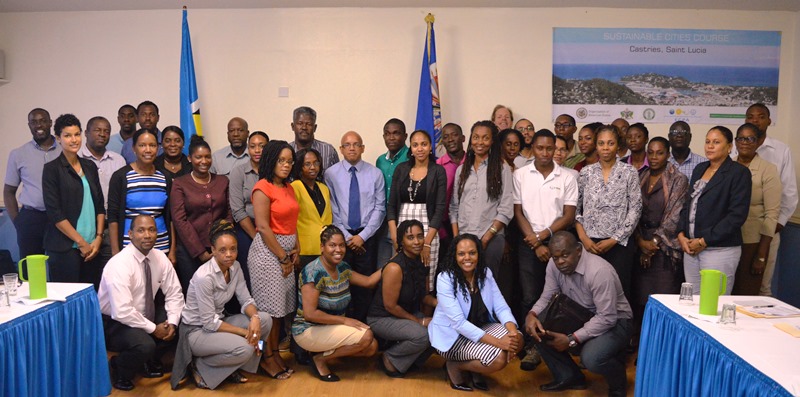

The four-day course, which was geared toward government officials and members of civil society involved in urban planning and development, provided a comprehensive overview of the various aspects that contribute to building sustainable communities. The format included theoretical presentations, student participation, case studies, practical exercises, field trips, and group discussions.
Events of this nature aim to address the increasingly powerful impact that demographic changes and technological advances are having on the lives of the people throughout the region. According to recent studies, the Latin American and Caribbean regions have among the highest rates of urbanization in the developing world; the proportion of the region’s population living in cities has doubled from 41 to 80 percent in the last 60 years. Rapid urbanization is posing urgent challenges in terms of housing, common spaces, sustainable transport, pollution control, the collection and disposal of industrial and electronic waste, and the adoption of renewable and clean energy, among other areas. Cities tend to expand beyond their planned limits, and both official and informal systems to provide water, sewerage, waste disposal, and other services to these areas are often insufficient and inefficient.
The event in Saint Lucia—the fourth edition of the Sustainable Cities Course—was jointly organized by the Organization of American States (OAS), the Saint Lucia Ministry of Sustainable Development, Energy, Science and Technology, and the organization Saint Lucia National Trust.
Through its Sustainable Communities in Central America and the Caribbean initiative, the Energy and Climate Partnership of the Americas (ECPA) seeks to strengthen the capacity of nongovernmental organizations and community-based associations to advance the Americas’ sustainable cities agenda. The first phase of the initiative concluded successfully in 2014. The OAS, through its Department of Sustainable Development, has begun implementing the second phase with financial support from the U.S. Permanent Mission to the OAS.
 View Map
View Map